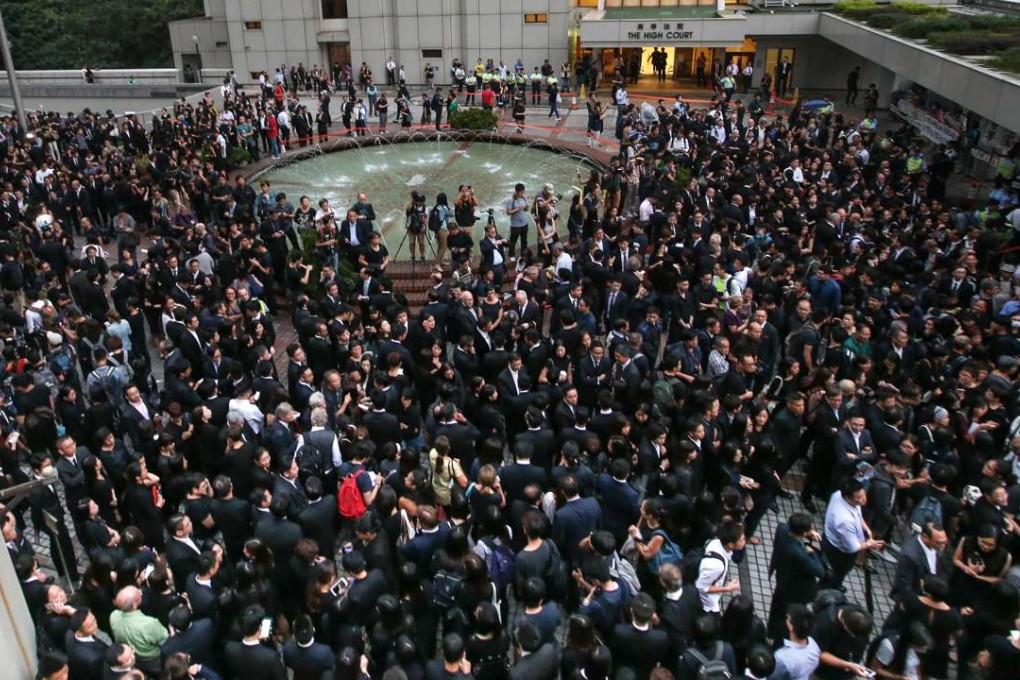Advertisement
Hundreds of Hong Kong lawyers in silent march against Beijing oath ruling
Prominent lawyers join rally, with Democratic Party founder Martin Lee describing the move as ‘a tank crashing into the legal system’
Reading Time:2 minutes
Why you can trust SCMP

Hundreds joined a silent march by the legal profession on Tuesday night in protest against the intervention by Beijing in a controversial oath-taking case, claiming it harms judicial independence.
However a Basic Law adviser to Beijing said it was up to a local court to decide whether the mainland ruling banning pro-independence lawmakers Sixtus Baggio Leung Chung-hang and Yau Wai-ching was retrospective and posed a legal challenge for more pan-democrat lawmakers over the way oaths were taken.
Advertisement
March organiser and legal-sector lawmaker Dennis Kwok said more than 2,000 people joined the protest Police put the turnout at 1,700.
It was the fourth silent march staged by lawyers against Beijing’s intervention in the judicial system since the handover in 1997.
Advertisement
Leading the march were senior counsel including Martin Lee Chu-ming, Audrey Eu Yuet-mee, Graham Harris, Alan Leong Kah-kit and solicitor John Clancey. Denis Chang, second on the Bar list, was also there.
Lee said the latest interpretation, the fifth of its kind since the handover, was “the worst” of all.
Advertisement
Select Voice
Choose your listening speed
Get through articles 2x faster
1.25x
250 WPM
Slow
Average
Fast
1.25x